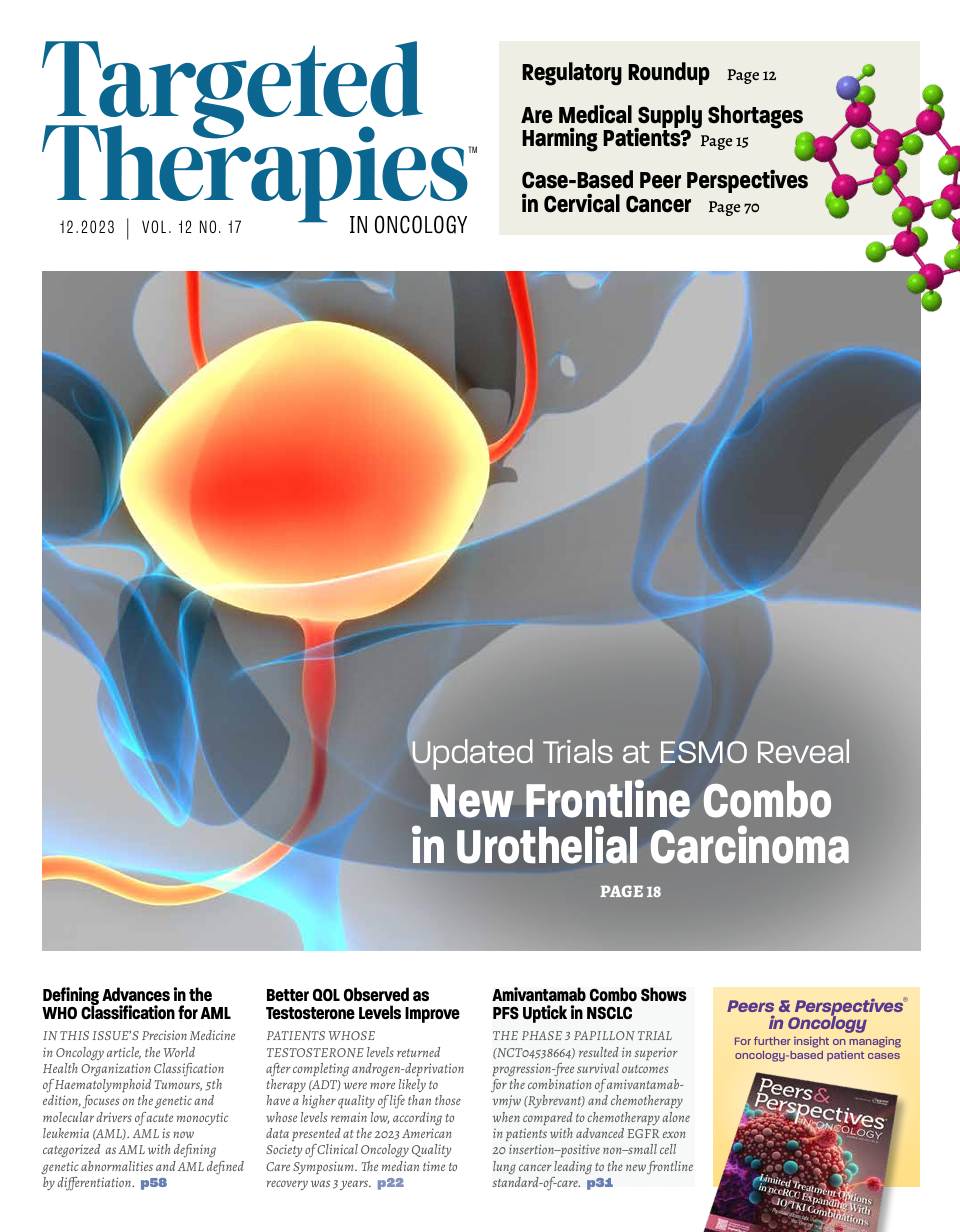Benefit of Neoadjuvant Therapy Illustrated During ESMO Congress 2023
The growing number of clinical trials testing neoadjuvant immunotherapy with or without chemotherapy has opened up new possibilities for treating locally advanced solid tumors.

The proliferation of preoperative neoadjuvant trials with immune-oncology (IO) alone or IO plus chemotherapy has led to a consistent wave of opportunities in locally advanced disease in the upfront setting across many solid tumors. At the European Society for Medical Oncology (ESMO) Congress 2023, Tina Cascone, MD, and colleagues1 presented data from a late-breaking abstract about the benefit of adding the PD-1 inhibitor nivolumab (Opdivo) to chemotherapy for patients with stage II to IIIB non–small cell lung cancer or head and neck cancer, as well as other solid tumors. We are seeing a greater application of these neoadjuvant approaches and combinations of IO-IO, IO plus chemotherapy, and sometimes IO with stereotactic radiation, leading to substantial tumor reductions and, in some cases, deep or complete responses.
In the past, the effort to identify biomarkers of response was one of the goals of these trials, whereas now the responses are deep and durable enough to permit alterations in clinical decision-making. Organ preservation and reduced extent of surgical resection are potential dramatic benefits, coupled with the prospect of immune memory, leading to reduction in tumor, recurrence, and subsequently improved overall survival. It appears that inflamed tumors at baseline, as well as those with high expression of the ligand PD-L1, may be affected most; selecting those patients who would benefit from neoadjuvant therapy is one of the frontiers for application of this type of therapy.
Neoadjuvant therapy shows great benefits, such as improved overall survival and quality of life, for patients with early-stage disease when cancer-involved organs can be salvaged, be preserved by stimulating immunity and restoring function, or not be surgically removed. Eliciting the appropriate and most effective combinations, such as doublet IO or chemotherapy combinations, is under investigation, as well as which situations would warrant postoperative continuation of the immunotherapeutic agents. This is a tremendously exciting time in locally advanced disease because a brief neoadjuvant course of IO therapy may not only demonstrate immediate benefits, but in responders, it has shown progression-free and potentially overall survival benefits.
REFERENCE
1. Cascone T, Lu S, Sepesi B, et al. CheckMate 77T: Phase III study comparing neoadjuvant nivolumab (NIVO) plus chemotherapy (chemo) vs neoadjuvant placebo plus chemo followed by surgery and adjuvant NIVO or placebo for previously untreated, resectable stage II–IIIb NSCLC. ESMO Congress 2023, LBA1.

Survivorship Care Promotes Evidence-Based Approaches for Quality of Life and Beyond
March 21st 2025Frank J. Penedo, PhD, explains the challenges of survivorship care for patients with cancer and how he implements programs to support patients’ emotional, physical, and practical needs.
Read More